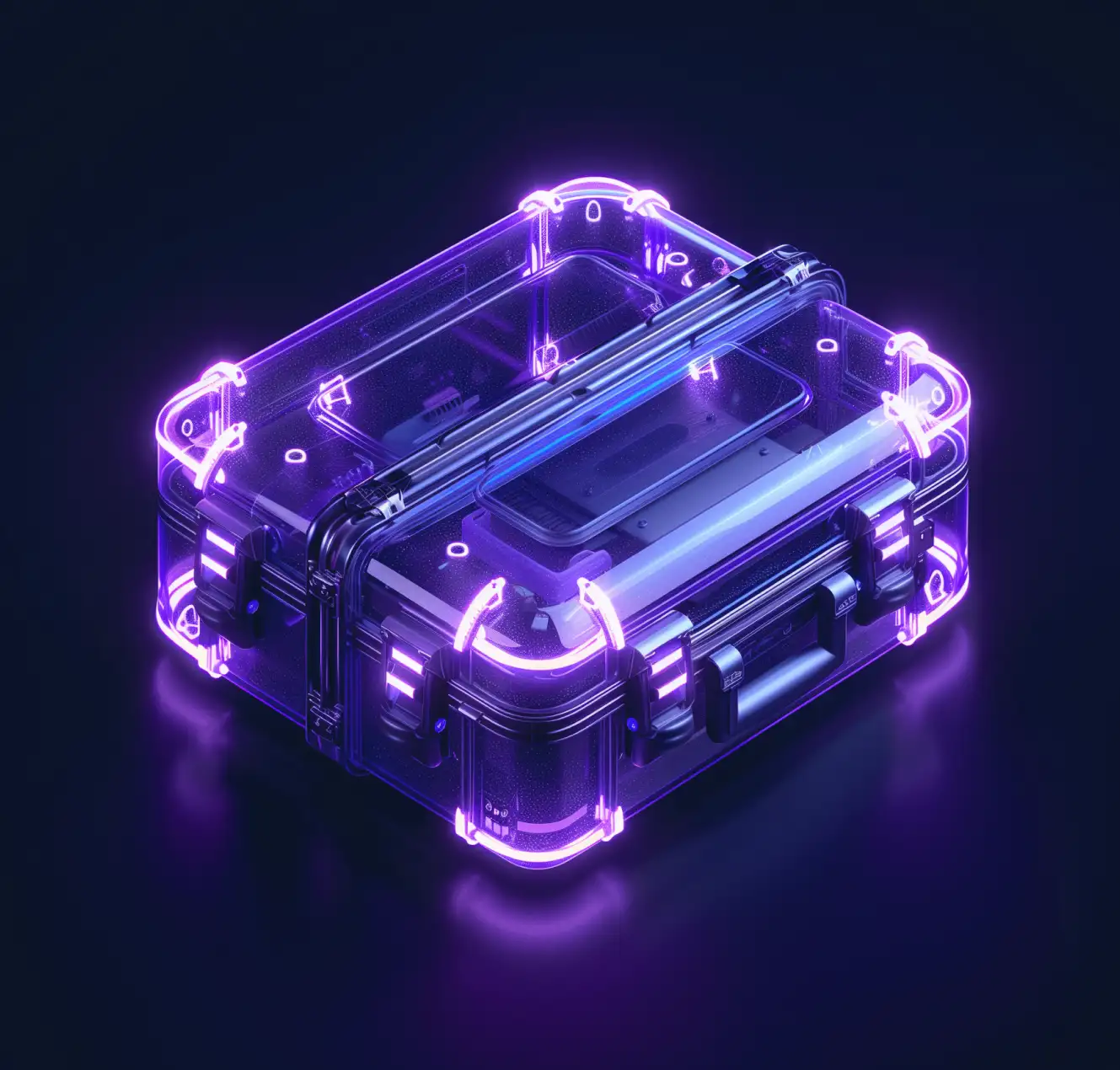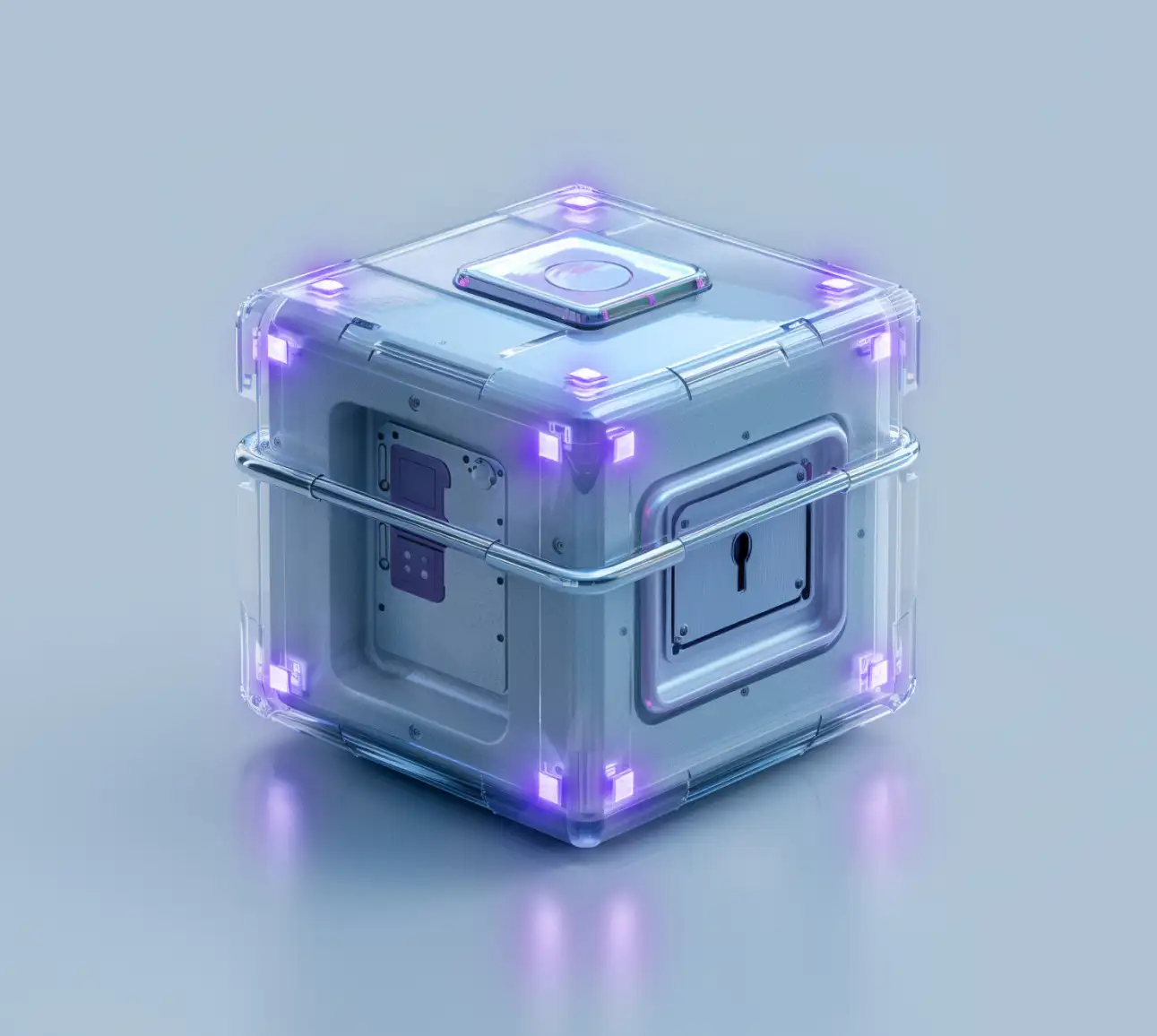With the development of blockchain technology, choosing an appropriate cryptocurrency wallet has become an important challenge for absolutely all users of digital assets. Wallets for storing cryptocurrency that are available today are divided into two types: custodial and non-custodial. Below, we will look into the difference between the two, discuss specific features, advantages and disadvantages of each, and will explain how to determine which type of wallet will best suit your goals and needs.
Custodial versus non-custodial: What is the main difference?
A custodial wallet is a wallet where management of assets is outsourced to a third party, such as a cryptocurrency exchange or specialized service. This third party stores the private keys, is responsible for security of funds, and, if necessary, helps regain access to them. In particular, such wallets are offered by well-known crypto exchanges, such as Binance and Coinbase.
In case of a non-custodial wallet, the private keys are stored by the user alone, meaning, on the one hand, that you have a full control over your funds and, on the other hand, that you are solely responsible for access to them. These wallets may be hardware-, software- and paper-based, and some of the famous brands worth mentioning are Ledger, Trust Wallet, and Atomic Wallet.
So, whether or not control of access to the wallet and its assets is centralized is the key difference between custodial and non-custodial wallets. Below, we will explore the difference between the two in more detail.
Advantages and disadvantages of custodial wallets
First, let us consider the benefits offered by custodial wallets, and there are quite some despite the lack of decentralized control.
- Regaining access. The user can always contact the support team to regain access to his or her wallet. This significantly reduces the risk of total loss of funds due to the user’s forgetfulness, absent-mindedness or the human factor in general.
- Ease of use. Most custodial wallets have a user-friendly interface, which makes them suitable for newbies. You do not have to spend much time figuring out how the interface and functionalities work, which is very attractive to those who have just started to learn cryptocurrency and does not want unnecessary troubles. These wallets allow you to deal with assets quickly and easily, at any time and any place.
- Additional functions. Many custodial wallets provide an opportunity to directly trade cryptocurrencies or support staking (a temporary transfer of crypto assets to the platform for a fee), allowing you not only to store your funds, but also to make money.
However, custodial wallets also have drawbacks that are important to know about, too.
- Increased risk of hacking. Storing funds on a centralized server increases the risk of hacking and theft of your assets. Custodial services often become targets for hacker attacks due to a large amount of funds they keep. There are many examples of such incidents. For example, in 2018, the Japanese crypto exchange Coincheck lost about USD 530 million in NEM (XEM) tokens as a result of one of the major thefts in the history of cryptocurrency. The reason for the hack was the storage of significant amounts in hot wallets, while the overall level of security was inadequate. In 2020, the private keys to KuCoin hot wallets were compromised, resulting in the theft of about USD 281 million in cryptocurrencies.
- Risk of loss of control. In fact, the user cannot fully control their assets and is, in any case, dependent on security and reliability of a third-party service. This leaves the possibility for blocking or freezing funds in case of breach of the terms of use of the wallet or other incidents.
- Regulation and legal aspects. Custodial services may be subject to local and international regulators, which sometimes affects the access to funds. A striking example here is the anti-Russian sanctions imposed by the EU that affect the access of Russian citizens to the use of international crypto services. Besides, if you choose a custodial wallet, you will have to go through a KYC (Know Your Customer) procedure, which reduces anonymity. This will meet resistance among a significant portion of the crypto community for a long time to come.
Advantages and disadvantages of non-custodial wallets
Now, let’s talk about the pluses of non-custodial wallets.
- Full control over assets. The user has a full control over his or her private keys and funds and, hence, does not depend on third-party services. It is this difference that is key for many users who want to be confident that no third party will ever have access to their assets for any reason.
- Security. The keys are stored locally by each user, which significantly reduces the risk of hacking. Although non-custodial wallets are considered to be more secure than custodial ones, they are also subject to attacks, especially if users fail to observe security measures. For example, in April 2018, MyEtherWallet (MEW) users were affected by a phishing attack that resulted in the loss of approximately USD 150,000 in ETH. Users were redirected to a fake website via fake DNS servers where they entered their private keys. In July 2020, a data breach was experienced by Ledger, a hardware wallet company. The hackers accessed personal data of more than 1 million users, including their names, email addresses, and physical addresses. As a result, massive phishing attacks took place to obtain private keys. In the beginning of 2023, hackers used phishing campaigns and malicious software to attack MetaMask and Phantom users, which also led to significant losses. All these incidents suggest that no one is immune to scam with cryptocurrency wallets. With this in mind, we are also ready to provide assistance with recovering your stolen funds as part of our Cryptocurrency Incident Investigation service.
- Anonymity (no KYC verification). This difference between custodial and non-custodial wallets is still crucial for many users. Non-custodial wallets usually do not require KYC (Know Your Customer) verification, as users control their private keys and funds by themselves. However, as the legislation develops and requirements for transparency of transactions become stricter, some non-custodial wallets begin to introduce KYC procedures for accessing certain functions, such as cryptocurrency exchange or use of additional services. For example, MetaMask does not require KYC verification for the creation of a wallet and managing funds. But if you use its built-in exchange functions (operated via third-party services), you may be required to pass the KYC verification process with the partners, such as Wyre or Transak.
Now, let’s look into the minuses of non-custodial wallets.
- The user being solely responsible for security of his or her funds and access to them. Thus, the loss of private keys means that access to your assets will be lost forever. Regaining access is only possible if you have backups or a seed phrase.
- Complexity of use. Custodial and non-custodial wallets differ in the level of knowledge and experience required to configure and use them. It is usually higher for non-custodial wallets.
- Limited capabilities. Many non-custodial wallets often do not support functions offered by custodial services, such as trading or staking. Active traders and investors may find this a nuisance.
Which cryptocurrency wallet to choose
Now that we have explored what custodial and non-custodial wallets are, it’s time to summarize what we have learned and determine which wallet to choose and when.
When choosing a wallet, several factors are to be taken into account. First, it is your relevant experience and knowledge. A custodial wallet may be seen as suitable by newbies due to its ease of use and advanced support features, including help with regaining access. Experienced users often give preference to non-custodial wallets for greater control and security of assets.
Next, you should consider the purposes of using your wallet. For active trading and frequent transactions it is better to choose a custodial wallet with convenient functionality. For example if you want to quickly buy NFT at a good price or promptly carry out another transaction. Non-custodial wallets are more suitable for long-term storage and security of funds, especially hardware wallets that do not require a constant Internet connection.
Of course, we should not forget about the issue of security. If your priority is to minimize risks and safeguard your assets, you should consider using a non-custodial wallet for better protection of your funds. Besides, non-custodial wallets are a better choice for those who place a higher value on anonymity.
Thus, which cryptocurrency wallet to choose will depend on each user’s specific needs and priorities. But regardless of what you choose, it is important to remain vigilant in security matters and continuously update your knowledge of the rules of storing cryptocurrencies. And if you encounter any problem you cannot solve on your own, feel free to ask for help from SEVEN SENSES. We are always ready for your call.

